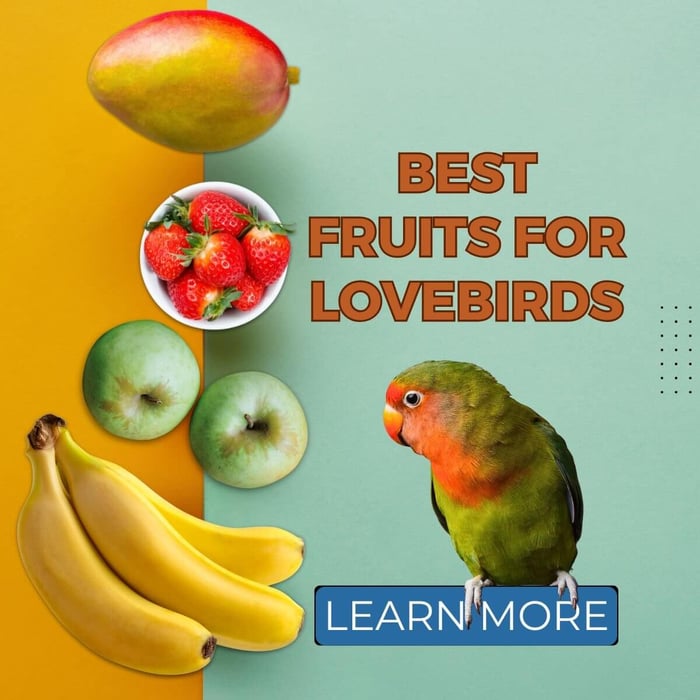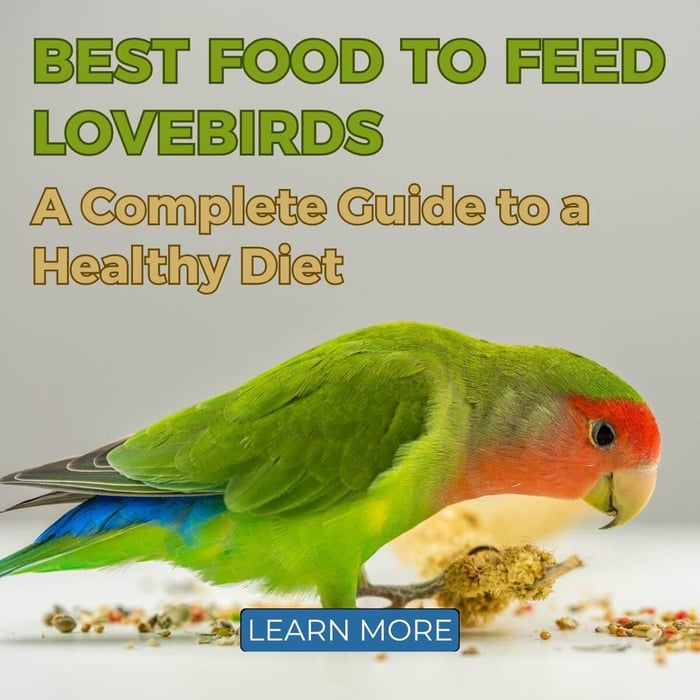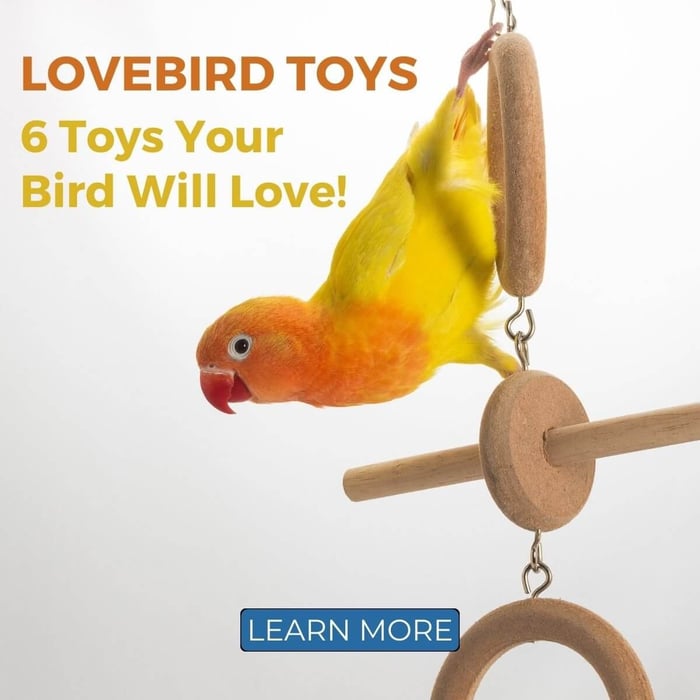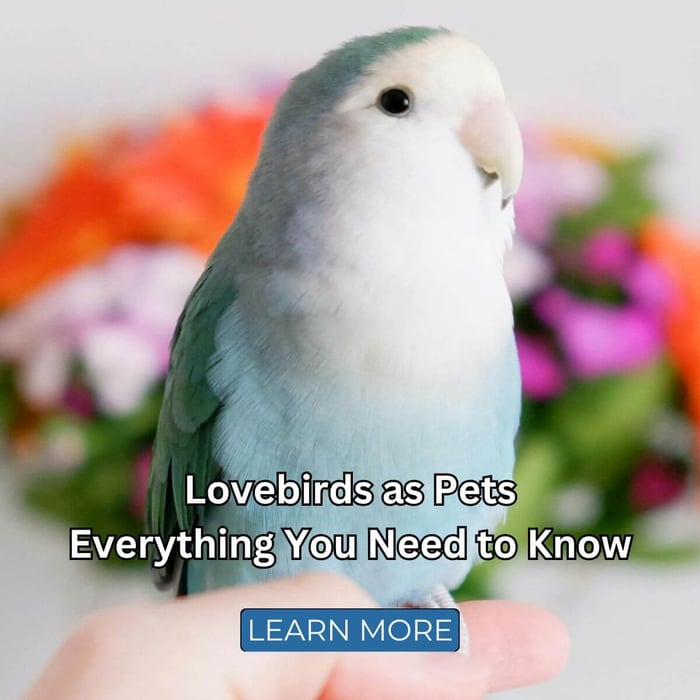Discover the Best Nuts for Lovebirds: Healthy Treats They'll Love
If you're wondering what the best nuts for lovebirds are, you're not alone. Many bird owners want to offer their feathered friends something tasty, nutritious, and safe. The good news is that nuts can be an excellent addition to your lovebird's diet when offered in moderation. Packed with healthy fats, protein, vitamins, and minerals, nuts provide essential nutrients that support energy, brain function, and feather quality.
However, not every nut is suitable for small parrots like lovebirds. Some are too large, too hard, or simply too fatty to be given often. In this guide, you'll discover which nuts are safe, how to prepare them properly, and the best ways to include them as part of a healthy, balanced diet.
Why Nuts Are Great for Lovebirds
Nuts are nature's energy-dense superfoods. For lovebirds, a small amount goes a long way. They are an excellent source of:
- Healthy fats that help maintain glossy feathers
- Protein for muscle repair and growth
- Essential minerals such as calcium, magnesium, and zinc
- Vitamin E, which supports immunity and skin health
In addition to their nutritional benefits, nuts provide natural enrichment. Cracking, foraging, or searching for nuts mimics natural behaviours that keep lovebirds mentally stimulated and active.
The Best Nuts for Lovebirds
Because lovebirds are small, it's important to choose nuts that are soft, easy to chew, and the right size. Large nuts should always be chopped or crushed before serving. The following are the best size-appropriate nuts for lovebirds:
Pine Nuts
Soft, bite-sized, and naturally oily, pine nuts are one of the best nuts for lovebirds. They provide healthy fats and minerals and can be used for training or hidden in foraging toys. Their small size makes them perfect for daily enrichment in moderation.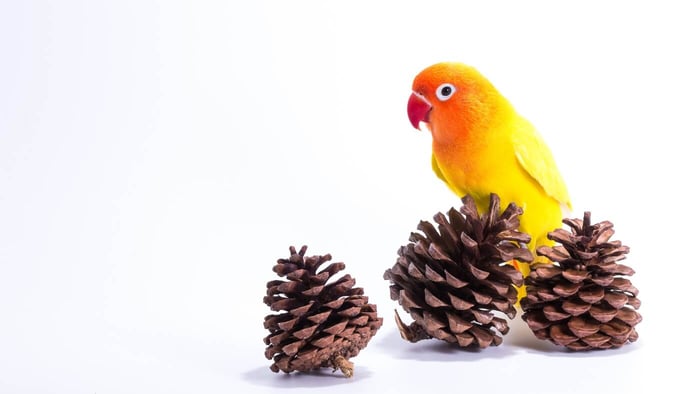
Chopped Almonds
Almonds are rich in calcium and vitamin E, making them a great addition to your lovebird's diet. Always offer finely chopped or slivered almonds to make them easy to handle. Avoid whole almonds, as they may be too large and hard for a lovebird to manage safely.
Chopped Walnuts
Walnuts are full of omega-3 fatty acids, which support heart and brain health. Offer very small fragments only, as they are rich and filling. A few tiny pieces per week are enough to give your bird a nutritious boost.
Pistachio Kernels
Pistachios are a fun and healthy option when offered unsalted and shelled. Break each kernel into smaller pieces before serving. Their mild flavour and soft texture make them a favourite treat for many lovebirds.
Chopped Hazelnuts
Hazelnuts are naturally sweet and packed with antioxidants. Serve finely chopped pieces, which your lovebird can enjoy during training or as part of a foraging mix. They're an excellent way to add variety to the diet.
Cashew Pieces
Cashews are soft and easy for lovebirds to chew, making them a suitable occasional treat. They're high in healthy fats but also calorie-rich, so offer small pieces sparingly, no more than once or twice a week.
Chopped Pecans
Pecans have a mild, buttery flavour and provide beneficial antioxidants and healthy fats. Offer them in tiny chopped pieces to keep portion sizes appropriate for small birds.
Macadamia Crumbs (Occasional Only)
Macadamias are very rich in fat and should only be used occasionally as a high-value treat. Finely crumble before offering and keep portions extremely small.
Nuts to Avoid
Some nuts can be dangerous to parrots and should never be included in your lovebird's diet. Always avoid:
- Salted, roasted, or flavoured nuts - contain added oils, salt, and artificial ingredients
- Chocolate or sugar-coated nuts - toxic and unsafe for birds
Always choose plain, raw, and unsalted nuts to ensure your bird's safety.
Feeding Nuts Safely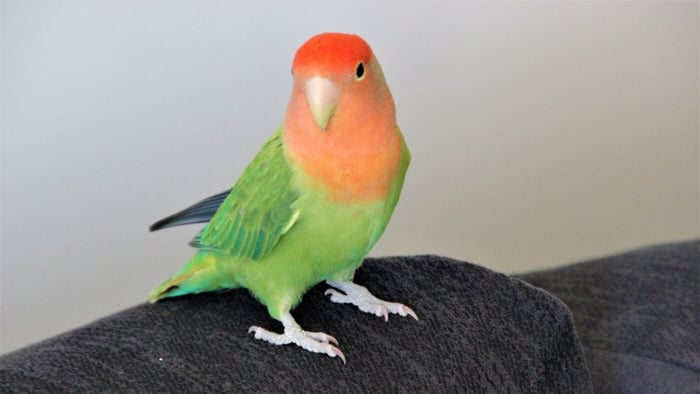
Nuts are high in calories, so moderation is key. Offer small nut pieces only a few times a week as part of a varied diet. Here are a few simple feeding tips:
- Use chopped nuts as training rewards or to encourage positive behaviour
- Hide nuts in foraging toys to promote problem-solving and exercise
- Combine small nut pieces with a quality daily diet, such as Askio Nature Complete Parrot Food Pellets
- Remove uneaten nut pieces within a few hours to prevent spoilage
The Takeaway: The Best Nuts for Lovebirds
The best nuts for lovebirds are small, natural, and raw. Pine nuts, chopped almonds, hazelnuts, and tiny walnut or pecan pieces can all make safe, nutritious treats when served correctly. These nuts are full of beneficial nutrients that support feather health, brain function, and energy, but they should only be offered in moderation.
By pairing these treats with a balanced daily diet and stimulating feeding activities, you can give your lovebird both the nutrition and the enjoyment they deserves.
Ready to Treat Your Lovebird?
Discover a wide range of nutritious parrot foods, natural treats, and engaging foraging toys at Parrot Essentials. Shop trusted brands and expert-approved options to keep your lovebird happy, healthy, and thriving. Because your feathered friend deserves only the best.
FAQs
Can lovebirds eat peanuts?
Yes, but peanuts are not recommended because they can carry aflatoxins, which are highly toxic to birds even in small amounts.
Are roasted nuts safe for lovebirds?
Roasted nuts are not ideal, as the heat can reduce nutrients and oils used in roasting can be unhealthy. Always stick to raw, unprocessed nuts.
Can I feed mixed nuts to my lovebird?
Yes, as long as every nut is raw, unsalted, and appropriately chopped. Avoid any mix containing peanuts or seasoning.
How should I store nuts for my bird?
Store nuts in an airtight container in a cool, dry place. In warm or humid environments, refrigeration helps prevent mould growth.
Can baby lovebirds eat nuts?
Wait until young lovebirds are fully weaned and eating solid foods comfortably. Start with very finely chopped soft nuts like pine nuts or crushed almonds, and always supervise feeding.

